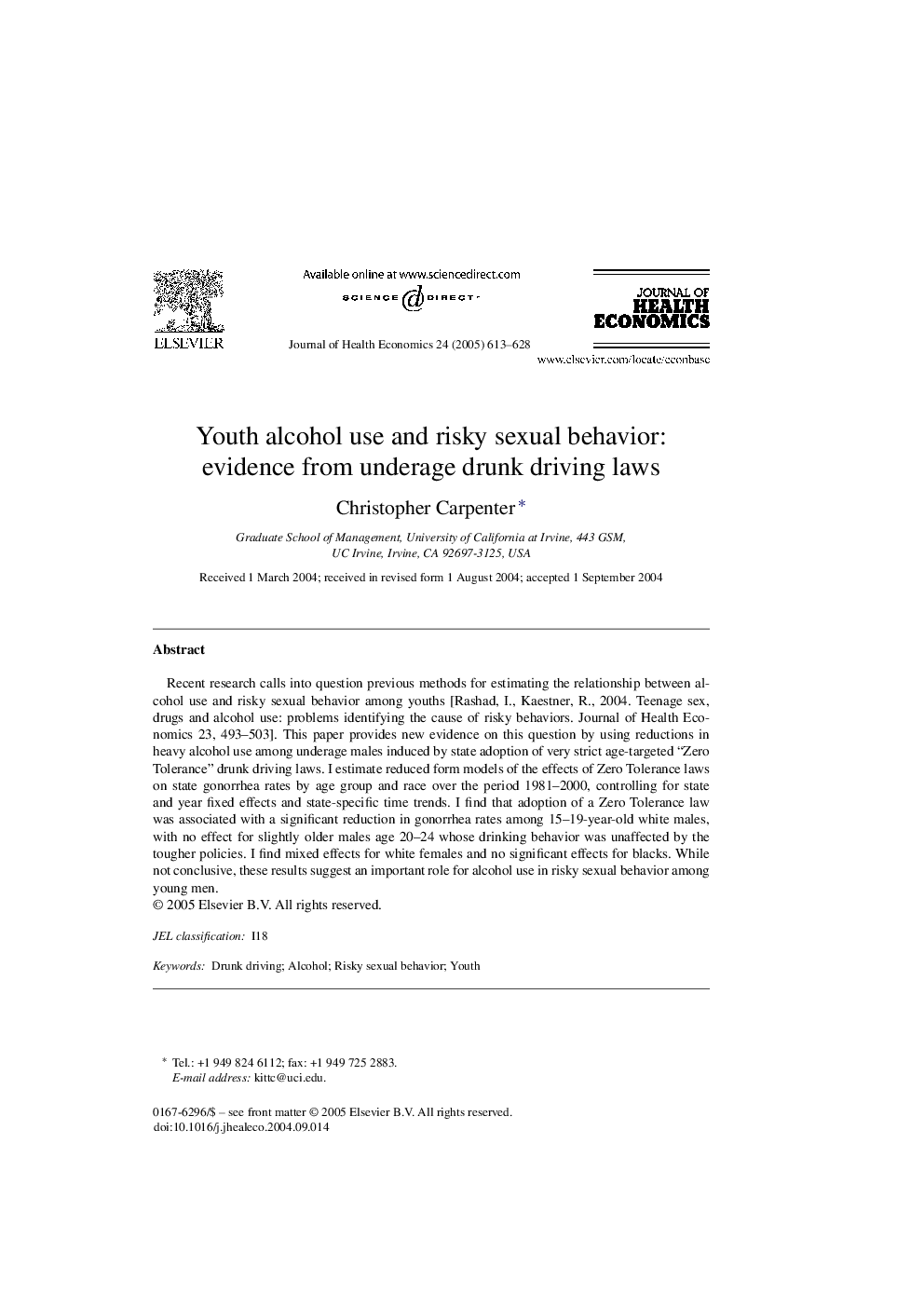| Article ID | Journal | Published Year | Pages | File Type |
|---|---|---|---|---|
| 10476773 | Journal of Health Economics | 2005 | 16 Pages |
Abstract
Recent research calls into question previous methods for estimating the relationship between alcohol use and risky sexual behavior among youths [Rashad, I., Kaestner, R., 2004. Teenage sex, drugs and alcohol use: problems identifying the cause of risky behaviors. Journal of Health Economics 23, 493-503]. This paper provides new evidence on this question by using reductions in heavy alcohol use among underage males induced by state adoption of very strict age-targeted “Zero Tolerance” drunk driving laws. I estimate reduced form models of the effects of Zero Tolerance laws on state gonorrhea rates by age group and race over the period 1981-2000, controlling for state and year fixed effects and state-specific time trends. I find that adoption of a Zero Tolerance law was associated with a significant reduction in gonorrhea rates among 15-19-year-old white males, with no effect for slightly older males age 20-24 whose drinking behavior was unaffected by the tougher policies. I find mixed effects for white females and no significant effects for blacks. While not conclusive, these results suggest an important role for alcohol use in risky sexual behavior among young men.
Related Topics
Health Sciences
Medicine and Dentistry
Public Health and Health Policy
Authors
Christopher Carpenter,
